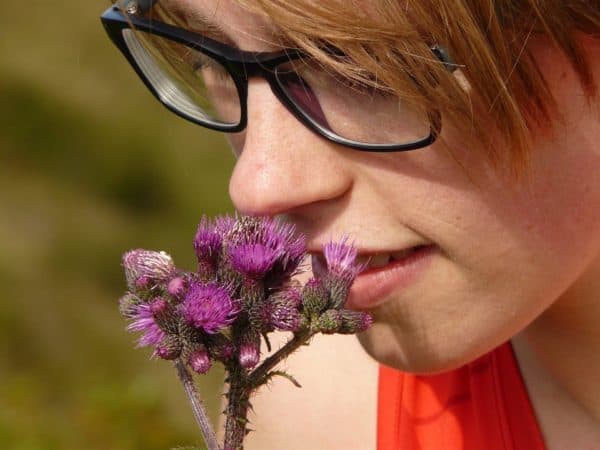
 Air pollution and sense of smell, are they related?
Air pollution and sense of smell, are they related?
Modern living has ruined our sense of smell and contributed to a host of health problems such as anxiety, depression and obesity, says a noted expert in olfactory evolution.
Traffic pollution, garbage and household mess are all creating a corrosive effect on our ability to smell and in turn on our mental and physical health, says Dr. Kara Hoover of the University of Alaska Fairbanks who spoke at a recent meeting of the American Association for the Advancement of Science in Boston.
“Our sense of smell evolved in a very rich landscape in which we were interacting regularly with the environment,” said Hoover to the Telegraph. “Today we’re not interacting with the environment and we’re in very polluted places.”
Hoover argues that because our sense of smell is connected to our ability to taste, when environmental pollutants disrupt our ability to smell, we compensate by seeking out stronger flavours, which usually means saltier and fattier foods.
Furthermore, studies have shown that people with strong senses of smell are more likely to have lower body weight than those with less robust smell power and that people who have suffered a loss of their sense of smell have a higher risk of anxiety and depression. “They suffer from poor quality of life and depression because they’re no longer engaging with food or loved ones in terms of their sense of smell,” says Hoover.
Hoover’s research was piqued by her own travels this past fall to Durham University in the UK where she served as visiting professor.
The contrast between the urban centres of Europe to her home territory in rural Alaska was striking. “We are already very mismatched to the modern urban smell scape — our evolutionary sensory tuning took place in lush environments in Africa, rich with natural odours of plants and animals and other humans,” says Hoover in her blog, the Smell of Evolution.
Air pollution and sense of smell
“We are at greater risk of reduced capacity to smell (smell-ability) and increasingly find ourselves in environments with unnatural odours, high concentrations of harmful odours, and an inequitable distribution of positive sensory input.”
Our noses contain about four million smell cells which are divided into roughly 400 different types, producing a wide variety of genetic variability in our ability to detect odours. Air pollution is known to impact our ability to smell.
The World Health Organization recently released its ranking of the world’s most polluted cities, as measured by concentration of fine particulate matter in the air — those particles smaller than 2.5 microns including dust, smoke and diesel exhaust. The WHO states that more than 80 per cent of people living in urban areas around the world are exposed to air quality that exceeds WHO limits. Low-income cities most affected, with a full 98 per cent of cities in low- and middle-income countries failing to meet air quality standards in comparison to 56 per cent of cities in high-income countries.
According to the ranking, the city of Zabol in Iran has the worst air pollution at 217 micrograms per cubic metre of PM2.5s, while Gwalior in India is second at 176. By comparison, the worst cities in Europe — all in the top ten are from Eastern European cities — register PM2.5s in the 40 to 80 microns per cubic metre.
In the United States and Canada, the small town of Visalia-Porterville, halfway between San Francisco and Los Angeles, an agricultural valley known as “America’s salad bowl,” got the worst reading at 18 microns per cubic metre. Canada had just two cities in the US/Canada top ten, Courtenay BC at 17 microns and Regina, Saskatchewan, at 14.
Leave a Reply
You must be logged in to post a comment.



 Share
Share Tweet
Tweet Share
Share




Comment